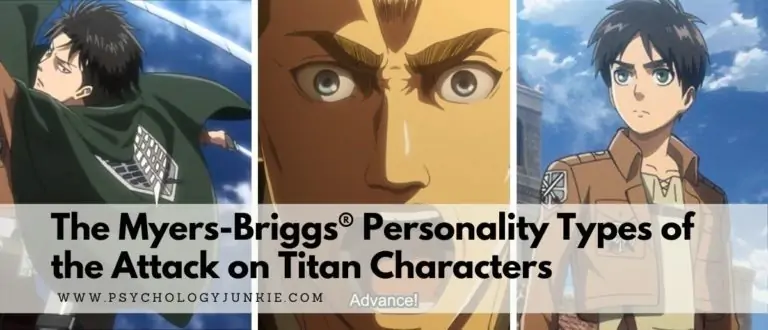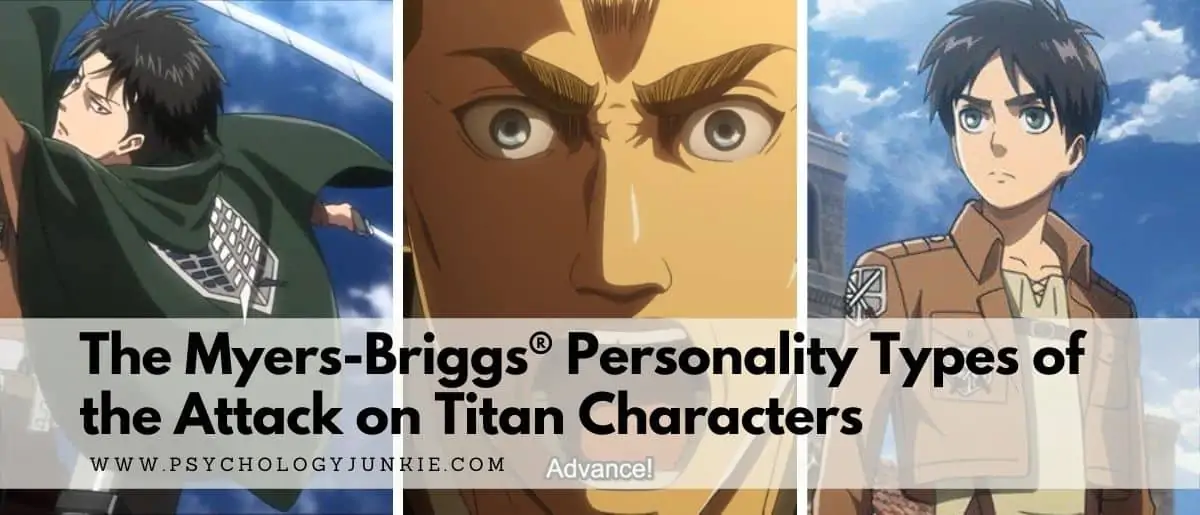‘Heretic’ and the MBTI®: The Character’s Personality Types
Two nights ago as I was watching Heretic in theaters I found myself wondering about the Myers-Briggs® personality types of Mr. Reed, Sister Barnes, and Sister Paxton. My 18-year-old daughter and I loved every second of the movie; we only wished it could last about ten hours longer because the intellectual discourse was so intriguing! We agreed there should be a whole series of suspense movies where people are trapped in sinister homes and forced to engage in controversial intellectual arguments. Let’s hope directors Scott Beck and Bryan Woods gives us more movies of this theme in the future!
Heretic isn’t your typical slasher horror. Instead, this is a horror movie for intellectuals who want to be mentally challenged and stimulated. The movie tells the story of two Mormon missionaries; Sister Barnes and Sister Paxton, who knock on the door of someone we know only as Mr. Reed (Hugh Grant). Reed seems harmless, affable, and genuinely curious about their faith. After being mocked, ridiculed, or seen as a joke by so many laypeople, the Sisters are thrilled to finally be able to be taken seriously…at least, so it seems in the beginning. Yet as the conversation with Mr. Reed lengthens, the sisters soon discover that they are in a dangerous game where they are the pawns and Reed is the player.

Movie reviewer Brian Tallerico from RogerEbert.com says this about the film:
“The true horror of “Heretic” doesn’t come through violent action as much as what Reed’s elaborate plans say about the human condition. Why do we believe what we believe? Is it just because we’ve been told to do so? Or is there something beyond the many books that Reed claims to have read? “Heretic” is a horror movie about some of the most soul-rattling ideas in history, including not just that there’s nothing after death but that everything we’ve built our lives on has been a lie.”
You can see a trailer for the movie below:
I think anyone can enjoy this movie, but I think it will be especially appealing to those with an Intuitive or Introverted Thinking preference. The film focuses on the nature of belief, disbelief, faith, skepticism, and whether we really should believe what we’ve been taught because it “feels good,” or because it’s what we’ve been told to believe. At the end of the movie every viewer will find themselves wondering about the two doors: Belief or Disbelief, and which one they would choose. Those both with and without faith will find their beliefs challenged.
But let’s talk about personality types, shall we?
Not sure what your personality type is? Take our new personality questionnaire here. Or you can take the official MBTI® here.
The Myers-Briggs Personality Types of the Characters in ‘Heretic’
Mr. Reed: ENTP
“For the rest of your lives, there will be before you chose, and there will be after.” – Mr. Reed
At first glance, Mr. Reed seems like a beloved college philosophy professor. He’s charming, affable, a little bumbly, but sweet.

Mr. Reed invites Sister Barnes and Sister Paxton into his home, which they initially refuse as they need an adult female present. However, he insists his wife is home and entices them with the promise of a freshly-baked blueberry pie. It’s been a long day, it’s pouring rain, and the girls are tired. Since Mr. Reed seems perfectly harmless and promises the presence of a pie-baking wife, they enter his home with a bit of relief and excitement.
Reed has a disarming, agreeable nature and seems genuinely curious about the sisters faith. However, he soon surprises the girls with his in-depth knowledge of Mormonism, as well as many other religions. His questions become more and more challenging, and the girls become more and more uncomfortable and anxious. The theological discussion, which Mr. Reed is so enthusiastic about, puts a spotlight on their faith and forces them to question the foundations of everything they believe in. Before long, the girls realize they are in a game of cat and mouse and every move they make must be made with the utmost caution and precision.
So let’s delve into Mr. Reed’s Myers-Briggs (MBTI®) personality type. First off, we can tell quickly that Reed is a deep thinker. He’s studied everything he can about the world’s religions in hopes of finding the truth. His skeptical, intellectual nature speaks to his auxiliary function: Introverted Thinking (Ti). Introverted Thinking is a cognitive function that is focused on filtering information down to its finest components in order to find accuracy. It’s not interested in following tradition or taking mental shortcuts, it wants to find the truth, no matter how unpopular that may be or how long it may take. This is a driving force of the ENTP and, certainly, Mr. Reed.
ENTPs show they care by helping people clarify their thoughts to have “clean” data. Mr. Reed’s affable, professor-ish nature speaks to this “love language.” Yes, he’s a deranged villain, of course. But he seems like he genuinely wants to help the girls have clearer thinking. And when they do challenge him or reach a new insight, he’s so genuinely pleased! As a viewer, you never feel scared that he’s going to erupt into a violent tantrum. No, this movie villain will send you to a creepy basement with a warm smile, a wink, and perhaps a slice of blueberry pie (with a little wolfsbane for some “spice”).
As an extrovert, Reed is creative, engaging, and friendly. He wants intellectual discourse, yet he seems to think the only way he can go about getting it is through trapping poor missionaries in his sinister maze of a home. I can empathize to a degree; as an NT myself it can be pretty tough to find intellectually stimulating conversations. But I want to warn all NTs not to follow Reed’s example. It’s bad behavior 100%.
The other thing we notice about Mr. Reed is that he likes to improvise. When one detail in his plan goes awry, he isn’t phased. Instead, he can create a challenging game from this new angle easily, drawing Paxton and Barnes into a whole new web of confusion. The ability to improvise, see a situation from many angles, and connect the dots the way that Mr. Reed does is a product of Extraverted Intuition (Ne). This, I believe, is Mr. Reed’s dominant function. He can think outside the box, spot connections between religions of old and modern monotheistic religions. He can draw comparisons between the world’s most popular religions and board games. Ne loves to make these seemingly random connections, to challenge people to see things in completely new ways, and to play with ideas and perspectives.
Another thing we can spot pretty quickly about Mr. Reed is that he’s got a lot of charm. He knows how to play on the girls’ emotions, making them feel comfortable, guilty, uncomfortable, or even curious. There’s nothing he doesn’t spot about their emotions, and he can orchestrate their feelings with the precision of a conductor. This charm is a product of his Extraverted Feeling side. Extraverted Feeling is the tertiary function of the ENTP and it helps them to form connections with people and read their emotions so that they will be more likely to engage in an intellectually stimulating conversations. ENTPs know how to put people at ease, disarm them, and encourage them to speak their minds without fear of what others might think.
Sister Barnes: INTJ
“I think we’re being studied.” – Sister Barnes
Of the two sisters, Barnes is the more aloof, guarded one. You can tell there’s a lot more to her than meets the eye, but she won’t spill her secrets or let her emotions cloud her judgment. There are certain minor inconsistencies in Reed’s conclusions, and she can spot them. If anyone can defend themselves against Reed’s challenges, Barnes is a good candidate. She is also the first to notice that things aren’t quite as they seem; putting together the scent of the candle with the fact that there, in fact, is no blueberry pie at all. She also realizes quickly that they’re being studied and can sense Reed’s underlying strategies and goals. I believe this is a product of the INTJ’s dominant function, Introverted Intuition (Ni). Ni can sense underlying themes, patterns, and strategies. It is always asking, “What else is going on here that’s not immediately obvious?”
Another trait of Barnes that speaks to her INTJ preference is her proactive, strategic side. She doesn’t just panic, she secretly slips a sharp letter opener into her coat pocket, comes up with a plan to send a warning to others, works out a means of escape with Paxton, and is always moving from one plan to the next in an effort to escape Reed’s house. No matter how often her plans fail, she keeps another contingency plan at the ready. This proactive, strategic nature is one of the INTJ’s greatest strengths.
Another sign that Barnes is an INTJ is that she’s very guarded about her own feelings. Unlike Paxton who is more of an open book, Barnes keeps her true feelings hidden. INTJs are not very revealing about themselves and tend to process their emotions inwardly rather than sharing them with others. They often keep a large part of themselves hidden, focusing instead on what they need to do rather than what their emotions are telling them.
Sister Paxton: ENFJ
“You read more than me do, Mr. Reed! MR. READ!” – Sister Paxton
Sister Paxton immediately endears herself to the audience with her warm-hearted, chatty, but slightly awkward demeanor. She’s kind-hearted and transparent, skilled at connecting with people and eager to see the best in others. When she sees a group of similar-aged girls frolicking outside a store, she immediately remarks on how much she loves them. Paxton is someone who cares deeply about people and wants to make a positive difference in their lives. Like most ENFJs, she hungers for meaning, understanding, and connection. But what makes her an ENFJ anyway?
First, Paxton cares first and foremost about people and how they are feeling. When she starts to guess Reed’s sinister motives, her strategy is to appeal to his emotions and influence his feelings. She’s especially kind to Reed, thanking him for his wisdom, assuring him that he knows more than she does. Rather than outright questioning his motives, she plays along to a degree, even thanking him for enlightening her. While Barnes defies him and points out errors, Paxton appeals to his feeling side. After all, maybe if he LIKES her and if he really feels like she respects his enlightenment he’ll go easier on both her and Barnes. Paxton’s emotional awareness, tact, and tendency to veer towards diplomacy rather than defiance is a sign of the ENFJ’s dominant function, Extraverted Feeling (Fe). Extraverted Feeling is skilled at navigating emotional wavelengths, sensing people’s feelings, and creating harmony or positive moods.
Another sign that Paxton is an ENFJ is her ability to spot what’s going on beneath the surface. Like Barnes, Paxton is no intellectual weakling. She quickly understands what Reed is all about, even noticing when his plan went a little off-kilter. “I think something happened that you didn’t expect,” she says, “I think you’re improvising.” Her ability to sense when the pattern in Reed’s behavior has shifted speaks to her ability to read-between-the-lines, a quality of Introverted Intuition (Ni). Ni is always asking “What else is going on here?” “What’s the pattern?” or “What’s the deeper meaning?” This also shows up in the beginning of the film, when Paxton reveals a profound spiritual insight she received while watching a rather…sketchy….film clip. Rather than seeing the clip for what it was, she found symbolism and meaning that convinced her of her faith’s truthfulness.
As Paxton gets deeper into Reed’s maze she understands what he’s trying to do, the “true religion” he’s trying to convince her of, and is able to interpret what to someone else might be a series of random situations and chaotic, frightening traps. And ultimately, what Paxton wants to know is “the truth.” Even though ENFJs are Feeling dominant types, they also have a strong desire to find the truth, accuracy, and precision. This is the influence of their inferior function, Introverted Thining. Paxton tells Reed repeatedly that she just wants to know the truth, and she’s willing to face terrifying situations in order to really find it. Yet at the end, she realizes, faith has it’s own special powers, and empirical evidence isn’t everything.
What Do You Think?
Have you seen Heretic? Do you have an opinion on the character’s personality types? I’d love to hear your perspective! Let me know what you think in the comments!
Find out more about your personality type in our eBooks, Discovering You: Unlocking the Power of Personality Type, The INFJ – Understanding the Mystic, and The INFP – Understanding the Dreamer. You can also connect with me via Facebook, Instagram, or Twitter!














